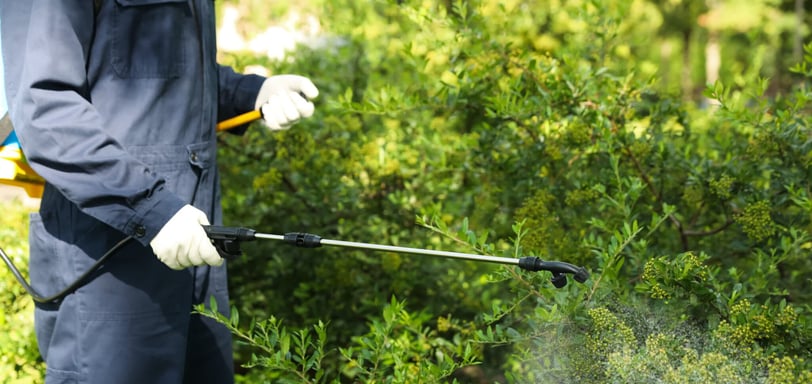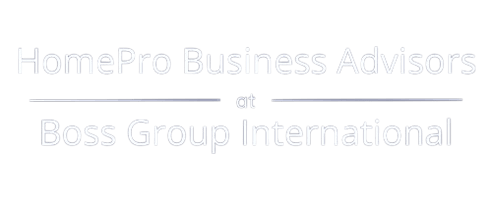Metrics that Matter - Pest Control


Metrics That Matter: What Pest Control Business Owners Need to Know Before Selling
The pest control industry in Florida is highly lucrative, with year-round demand from homeowners, businesses, and property managers needing protection from termites, mosquitoes, rodents, and other invasive pests. If you own a pest control business and are thinking about selling, understanding what buyers look for is key to maximizing your business’s value.
Buyers don’t just look at how busy you are, they analyze key financial, operational, and regulatory metrics to determine if your business is profitable, compliant, and scalable.
This guide breaks down the critical metrics buyers focus on, highlights Florida-specific licensing and regulatory considerations, and provides actionable steps to prepare your business for a successful sale.
Why Metrics Matter When Selling a Pest Control Business
Buyers evaluate pest control businesses based on financial stability, recurring revenue, licensing compliance, and workforce reliability. Before putting your business on the market, you need to ensure it is:
Profitable - with strong gross margins and predictable revenue.
Recurring revenue-driven - buyers prefer businesses with service contracts over one-time jobs.
Compliant with Florida’s strict licensing laws - without proper licenses, a sale can’t happen.
Operationally sound - strong workforce, efficient scheduling, and customer retention.
Scalable - buyers want a business that can grow beyond the current owner.
Let’s take a closer look at the top metrics buyers analyze and how to improve them before listing your business for sale.
Florida’s Pest Control Industry: Why Buyers Are Interested
Why Florida?
Florida’s warm climate and dense population create a constant demand for pest control services, with issues such as:
Termites - a year-round problem requiring fumigation and prevention services.
Mosquito control - critical in Florida’s humid environment.
Rodents and wildlife removal - especially in urban and suburban areas.
General pest control - homeowners and businesses require regular treatment.
Who’s Buying?
Private equity firms looking to consolidate pest control businesses into larger platforms.
National and regional pest control companies expanding their market share.
Owner-operators seeking a turnkey, cash-flowing business.
What Buyers Care About:
Recurring service contracts (predictable income).
Licensing and compliance (Florida’s strict regulations).
Profitability and gross margins.
Customer concentration and retention.
Technician retention and training (licensed employees are valuable).
Top Metrics Buyers Analyze When Evaluating a Pest Control Business
1. Revenue and Service Mix
What It Is: Breakdown of total revenue from different service types:
Residential vs. commercial accounts.
Recurring service agreements vs. one-time jobs.
General pest control vs. termite, mosquito, fumigation, or wildlife removal.
Why It Matters: Buyers prefer businesses with diverse revenue streams.
What Good Looks Like:
A balanced mix of services (recurring pest control + specialty services).
Revenue from both residential and commercial clients.
Red Flags:
Overreliance on one-time treatments rather than recurring contracts.
High revenue dependence on a single service, like termite fumigation.
2. Recurring Maintenance Contracts
What It Is: Long-term agreements with homeowners, HOAs, property managers, and businesses for regular pest control treatments.
Why It Matters: Recurring contracts provide stable, predictable cash flow, making the business more valuable.
What Good Looks Like:
50%+ of revenue from recurring service agreements.
Diversified customer base (homeowners, businesses, HOAs).
Red Flags:
No formal contracts - relying solely on repeat business without written agreements.
3. Gross Profit Margins
What It Is: Revenue minus direct costs (chemicals, labor, fuel, and equipment).
Why It Matters: Healthy margins reflect strong pricing and efficient operations.
What Good Looks Like:
50-70% gross margins on recurring services.
Consistent margins over the last 3-5 years.
Red Flags:
Declining margins due to rising labor costs, poor route efficiency, or underpricing.
4. Customer Concentration
What It Is: The percentage of revenue coming from top clients.
Why It Matters: A diversified customer base lowers risk.
What Good Looks Like:
No single client accounts for more than 10-15% of revenue.
Red Flags:
A small number of clients generating most of the revenue.
5. Licensing & Compliance (Florida-Specific)
What It Is: Proper pest control licensing from the Florida Department of Agriculture and Consumer Services (FDACS).
Why It Matters: Buyers won’t move forward if the business isn’t fully licensed.
What Good Looks Like:
Active Pest Control Business License.
Properly licensed Certified Operators and technicians.
Full compliance with Florida pesticide application and fumigation regulations.
Red Flags:
Expired licenses, uncertified technicians, or improper chemical handling.
6. Workforce & Technician Retention
What It Is: Number and certification level of pest control technicians.
Why It Matters: Trained, licensed employees are a valuable asset.
What Good Looks Like:
Low turnover, properly licensed staff.
Employee training programs in place.
Red Flags:
High turnover - buyers don’t want to struggle to replace workers.
Operational Elements That Impact Value
Efficient route planning - optimized scheduling improves profitability.
Technology and software - using CRM and routing software (e.g., PestPac, ServiceTitan).
Accurate financial records - clear, CPA-reviewed books.
Well-maintained fleet and equipment - vehicles and sprayers in good condition.
Strong online reputation - positive Google/Yelp reviews, BBB accreditation.
Common Mistakes Sellers Make in the Pest Control Industry
Messy financials - mixing personal and business expenses.
No formal contracts - buyers want signed agreements for recurring services.
Licensing issues - missing FDACS-required pest control certifications.
Over-reliance on one revenue stream - buyers prefer a balanced mix.
High employee turnover - buyers want a stable, licensed workforce.
Actionable Tips to Improve Key Metrics Before Listing
Increase recurring revenue - secure more annual service agreements.
Optimize pricing and margins - review costs, adjust pricing accordingly.
Ensure full licensing compliance - verify all technician and business licenses with FDACS.
Invest in workforce retention - reduce turnover, train and certify employees.
Use pest control management software - streamline scheduling, invoicing, and customer communication.
Organize financial records - CPA-reviewed, clear separation of personal and business expenses.
Strengthen online reputation - actively request and manage customer reviews.
Maintain equipment and fleet - well-maintained trucks and sprayers increase value.
Conclusion: Preparing Your Florida Pest Control Business for a Successful Sale
Florida pest control businesses can sell for strong valuations, but only if they’re profitable, properly licensed, and structured for growth.
By focusing on recurring revenue, compliance, workforce stability, and financial transparency, you’ll make your business more attractive to buyers and maximize its sale price.
Thinking of selling your Florida pest control business?
Contact us for a confidential consultation to learn how to maximize your company’s value before going to market.
